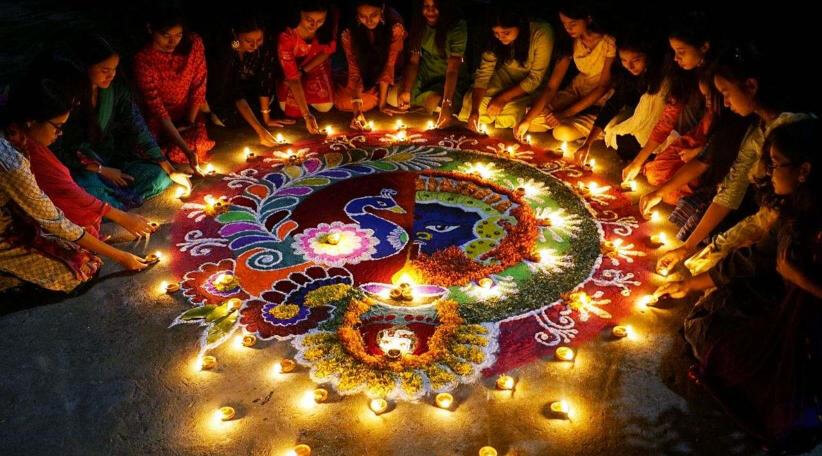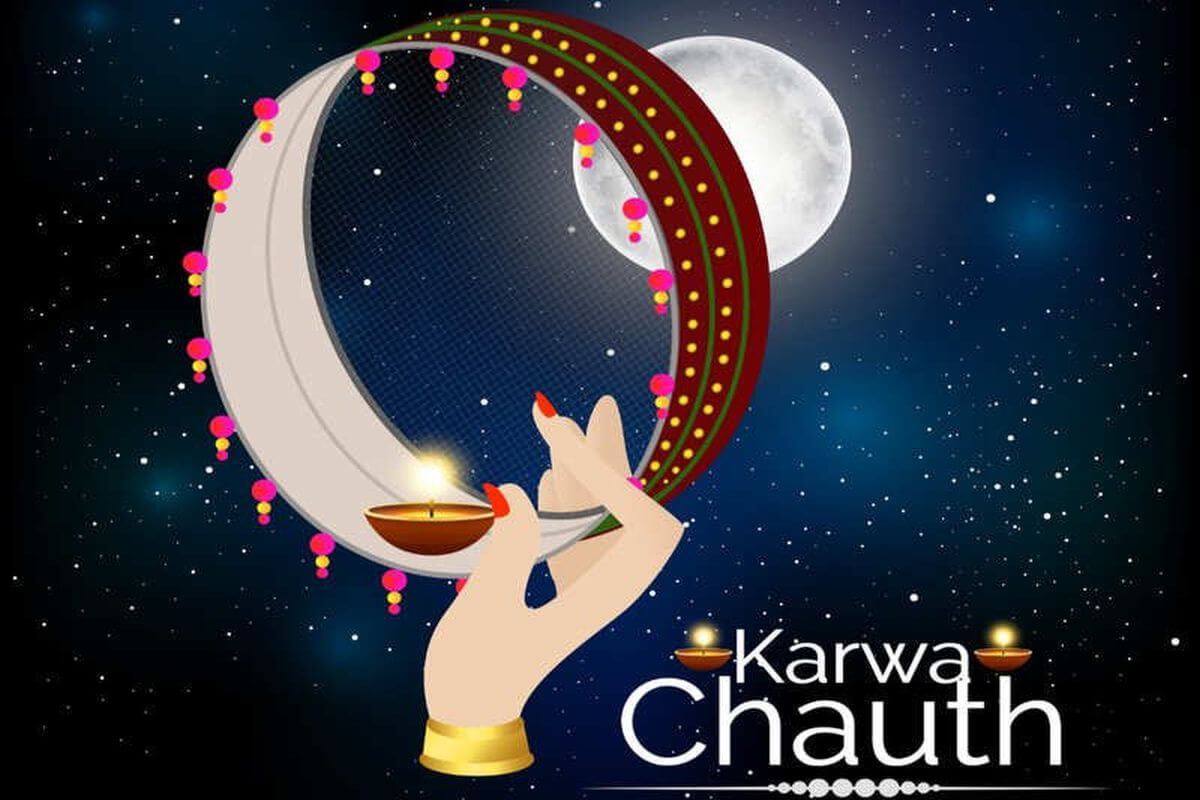Karwa Chauth is a significant festival celebrated primarily in North India, honoring the sacred bond between a husband and wife. It is a day of fasting, prayer, and devotion, where married women fast from sunrise to moonrise for the long life, health, and prosperity of their husbands. Beyond its traditional roots, Karwa Chauth has evolved into a celebration of love, loyalty, and the strength of marital commitment, blending religious devotion with romantic expression.

The History and Significance of Karwa Chauth
The origin of Karwa Chauth dates back to ancient times when women prayed for the safety of their husbands who would often travel long distances for trade or war. "Karwa" refers to an earthen pot, symbolizing prosperity, and "Chauth" means the fourth day, as the festival falls on the fourth day of the Hindu lunar month of Kartik.
The fast is believed to bring protection and longevity to husbands, reflecting the deep sense of care and sacrifice that defines marital bonds. While the rituals are rooted in tradition, the essence of Karwa Chauth transcends time, symbolizing unwavering dedication and mutual respect between partners.

The Rituals of Karwa Chauth
The day begins before sunrise, as married women partake in a pre-dawn meal known as Sargi, traditionally prepared by their mothers-in-law. After consuming this meal, they begin a strict fast, refraining from food and water throughout the day. During the fast, women dress in traditional attire, often in red or bridal colors, and adorn themselves with jewelry and henna designs on their hands, adding a festive spirit to the occasion.
In the evening, women gather for a puja (prayer), where they listen to stories and legends associated with Karwa Chauth. The most famous tale is that of Queen Veeravati, whose unwavering devotion to her husband brought him back to life. This story, and others like it, reflect the power of love, faith, and prayer.
As night falls and the moon rises, women break their fast after sighting the moon, often viewing it through a sieve. They then offer water and prayers to the moon, symbolizing the divine blessings for their husbands. The fast is broken when the husband offers water and the first bite of food to his wife, signifying the end of the fast and the mutual bond of love and care.
The Modern Karwa Chauth: A Celebration of Love and Equality
In modern times, Karwa Chauth has taken on new dimensions, with many couples choosing to celebrate the day together, not just as a religious obligation but as a testament to their love and commitment. In some cases, men have also started fasting for their wives, symbolizing equality and shared responsibility in the relationship.
The festival has become a day for expressing love, with husbands showering their wives with gifts as tokens of appreciation. While the rituals remain rooted in tradition, the festival has adapted to contemporary values, celebrating the bond of marriage in a way that resonates with modern couples.
Debates and Criticism
While Karwa Chauth is a cherished festival for many, it has also been the subject of debates, particularly around issues of patriarchy and gender roles. Critics argue that the festival reinforces traditional gender dynamics, where the responsibility for the husband's well-being rests on the wife. However, others view the fast as an act of personal devotion and love, with many women choosing to fast not out of obligation but as a meaningful expression of their care and commitment.
In response to such criticisms, some couples have embraced more egalitarian practices, with both partners fasting for each other or using the day as a time to reflect on the mutual sacrifices and efforts that sustain a relationship.
Karwa Chauth and Popular Culture
Karwa Chauth has also found a prominent place in Indian popular culture, with Bollywood movies and television shows portraying the festival in romanticized and glamorous ways. These portrayals have helped popularize the festival beyond its traditional regions and have influenced how young generations view the celebration. Films like "Dilwale Dulhania Le Jayenge" and "Kabhi Khushi Kabhie Gham" have immortalized the moonrise scene, turning it into a symbol of eternal love and devotion.
The Spiritual Dimension of Karwa Chauth
Beyond the rituals and romance, Karwa Chauth carries a deep spiritual significance. Fasting, in Hinduism, is often viewed as a way to purify the mind and body, strengthen one's resolve, and deepen one's connection with the divine. By abstaining from food and water, women exercise self-discipline and focus their energy on prayer and devotion, creating a sense of spiritual fulfillment.
The act of gazing at the moon also holds spiritual symbolism. The moon, in Hindu tradition, represents calmness, beauty, and divinity. Offering prayers to the moon symbolizes a connection to these divine qualities and the channeling of those energies into the marital relationship.
Conclusion: A Festival of Devotion and Celebration
Karwa Chauth is more than just a day of fasting; it is a celebration of love, loyalty, and the enduring strength of marriage. It reflects the sacrifices that partners make for each other, and the deep-rooted faith in the power of prayer and devotion. Whether viewed through the lens of tradition, romance, or spirituality, Karwa Chauth remains a festival that resonates with many as a reminder of the beautiful, sometimes challenging, but always rewarding journey of marriage.
In a world that is constantly evolving, Karwa Chauth continues to adapt, symbolizing not just the preservation of cultural traditions but also the celebration of love in its most selfless form.


0 Comments